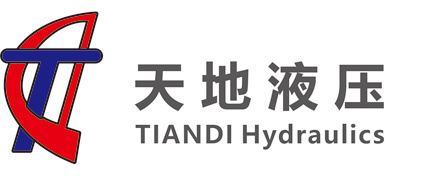GET THE LATEST NEWS FROM THE COMPANY
NEWS CATEGORY
Understanding Flow Restrictor Valves: Essential Components for Effective Fluid Control
Published:
2025-06-02 11:20
Flow restrictor valves, as the name suggests, are crucial components designed to regulate the flow of fluids within a system. These valves ensure that the flow rate remains within predetermined limits, which is essential for maintaining optimal operating conditions in various industrial applications. Understanding how flow restrictor valves work and their significance can greatly enhance the efficiency and safety of fluid management systems.
The primary function of a flow restrictor valve is to manage the flow rate of liquids or gases. By creating a specific resistance, these valves can effectively limit the volume of fluid passing through a system. This is particularly important in applications where precise flow control is necessary, such as in chemical processing, water treatment, and hydraulic systems. Flow restrictor valves help prevent overpressure situations, reduce wear and tear on equipment, and contribute to energy savings by ensuring that pumps and compressors operate within their optimal ranges.
There are several types of flow restrictor valves, each designed to meet specific needs and application requirements. Common types include needle valves, which allow for fine adjustments in flow rate, and fixed orifice valves, which maintain a constant flow regardless of pressure changes upstream. Additionally, there are adjustable flow restrictors that can be modified to accommodate varying flow requirements. The selection of the appropriate type of flow restrictor valve is vital to achieving the desired performance and efficiency in any fluid management system.
One of the significant benefits of using flow restrictor valves is their ability to enhance system performance. By maintaining a consistent flow rate, these valves help mitigate issues related to turbulence and cavitation, which can lead to inefficiencies and potential damage to equipment. Furthermore, flow restrictor valves can assist in optimizing the use of resources, thereby reducing operational costs. In many cases, implementing effective flow control measures can result in significant energy savings, contributing to a more sustainable operation.
In addition to performance improvements, flow restrictor valves also play a role in safety. By preventing excessive flow rates, these valves can help avoid pressure build-up and potential system failures. This aspect is particularly important in industries dealing with hazardous materials or high-pressure systems, where safety is paramount. Regular maintenance and monitoring of flow restrictor valves are essential to ensure their reliable operation and to prevent unforeseen incidents.
In conclusion, flow restrictor valves are indispensable components in the industrial equipment realm, providing essential flow control in a variety of applications. Understanding their function, types, and benefits is crucial for any professional involved in fluid management. By utilizing flow restrictor valves effectively, organizations can enhance operational efficiency, maintain safety, and optimize resource use, making them a vital part of modern industrial systems.
The primary function of a flow restrictor valve is to manage the flow rate of liquids or gases. By creating a specific resistance, these valves can effectively limit the volume of fluid passing through a system. This is particularly important in applications where precise flow control is necessary, such as in chemical processing, water treatment, and hydraulic systems. Flow restrictor valves help prevent overpressure situations, reduce wear and tear on equipment, and contribute to energy savings by ensuring that pumps and compressors operate within their optimal ranges.
There are several types of flow restrictor valves, each designed to meet specific needs and application requirements. Common types include needle valves, which allow for fine adjustments in flow rate, and fixed orifice valves, which maintain a constant flow regardless of pressure changes upstream. Additionally, there are adjustable flow restrictors that can be modified to accommodate varying flow requirements. The selection of the appropriate type of flow restrictor valve is vital to achieving the desired performance and efficiency in any fluid management system.
One of the significant benefits of using flow restrictor valves is their ability to enhance system performance. By maintaining a consistent flow rate, these valves help mitigate issues related to turbulence and cavitation, which can lead to inefficiencies and potential damage to equipment. Furthermore, flow restrictor valves can assist in optimizing the use of resources, thereby reducing operational costs. In many cases, implementing effective flow control measures can result in significant energy savings, contributing to a more sustainable operation.
In addition to performance improvements, flow restrictor valves also play a role in safety. By preventing excessive flow rates, these valves can help avoid pressure build-up and potential system failures. This aspect is particularly important in industries dealing with hazardous materials or high-pressure systems, where safety is paramount. Regular maintenance and monitoring of flow restrictor valves are essential to ensure their reliable operation and to prevent unforeseen incidents.
In conclusion, flow restrictor valves are indispensable components in the industrial equipment realm, providing essential flow control in a variety of applications. Understanding their function, types, and benefits is crucial for any professional involved in fluid management. By utilizing flow restrictor valves effectively, organizations can enhance operational efficiency, maintain safety, and optimize resource use, making them a vital part of modern industrial systems.
flow restrictor valve
previous page
previous page
Related news

